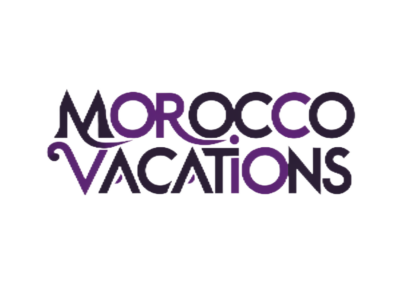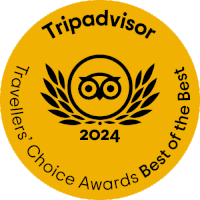Heading to Morocco? It’s gonna be amazing! But before you jump on that magic carpet ride (well, maybe a plane), here are 20 quick things to know to make your trip smooth and unforgettable. We’ll cover how to shop, how to get around, and awesome things to keep in mind about the culture. Let’s dive in!
Key Takeaways
- The ideal times to visit Morocco are during spring and fall when the weather is most comfortable.
- To show respect for local traditions, it’s important to dress conservatively and use polite greetings.
- Haggling over prices is common in Moroccan markets, so be ready to negotiate.
- For better phone service, consider buying a SIM card from a local provider once you arrive.
- Knowing a few basic phrases in Moroccan Arabic can greatly improve your interactions with local people.
1. Best Time to Visit
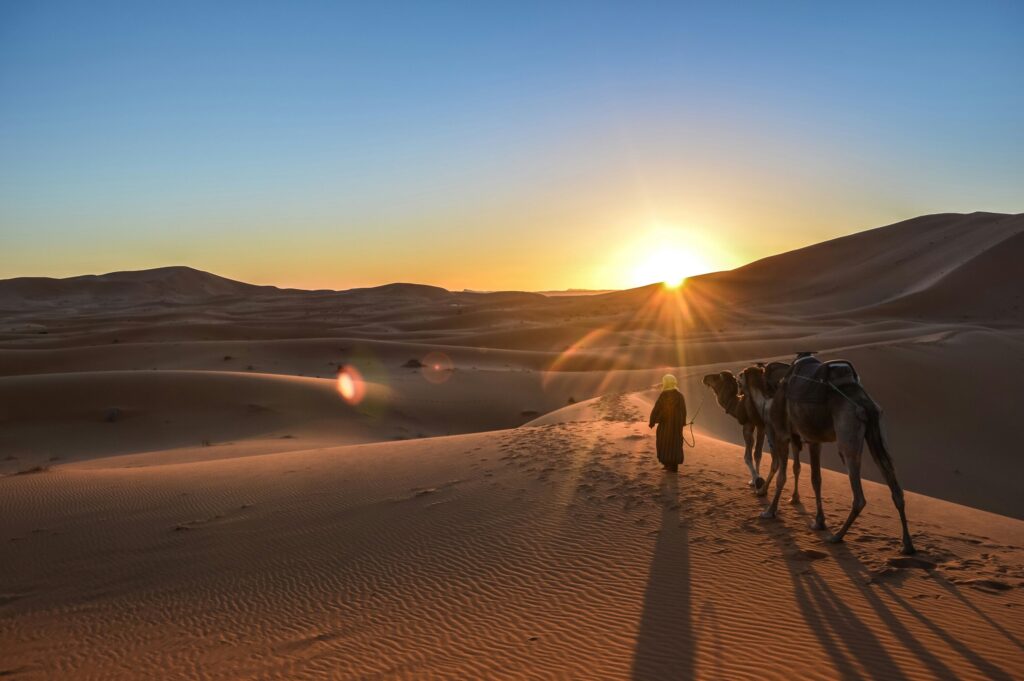
When planning your trip to Morocco, the best times to visit are during spring (March to May) and fall (September to October). These months offer the most pleasant weather and vibrant landscapes. The cooler temperatures are ideal for hiking in the Atlas Mountains or exploring ancient medinas comfortably, avoiding the intense summer heat.
In spring, the countryside bursts into color with wildflowers, making your walks and photos even more picturesque. Fall, on the other hand, is a great time to experience local culture, such as the olive harvest in the countryside. This isn’t just picking olives; it’s a way to truly engage with Moroccan traditions.
These seasons also provide a chance to see some fascinating wildlife, like bird migrations in the Merzouga Desert, which are a treat for nature enthusiasts.
Visiting during these months usually means fewer tourists and better deals on flights and hotels, making your trip more enjoyable and easier on your wallet. Choosing the right time to visit Morocco can greatly enhance your experience, letting you make the most of every moment.
2. Visa Requirements
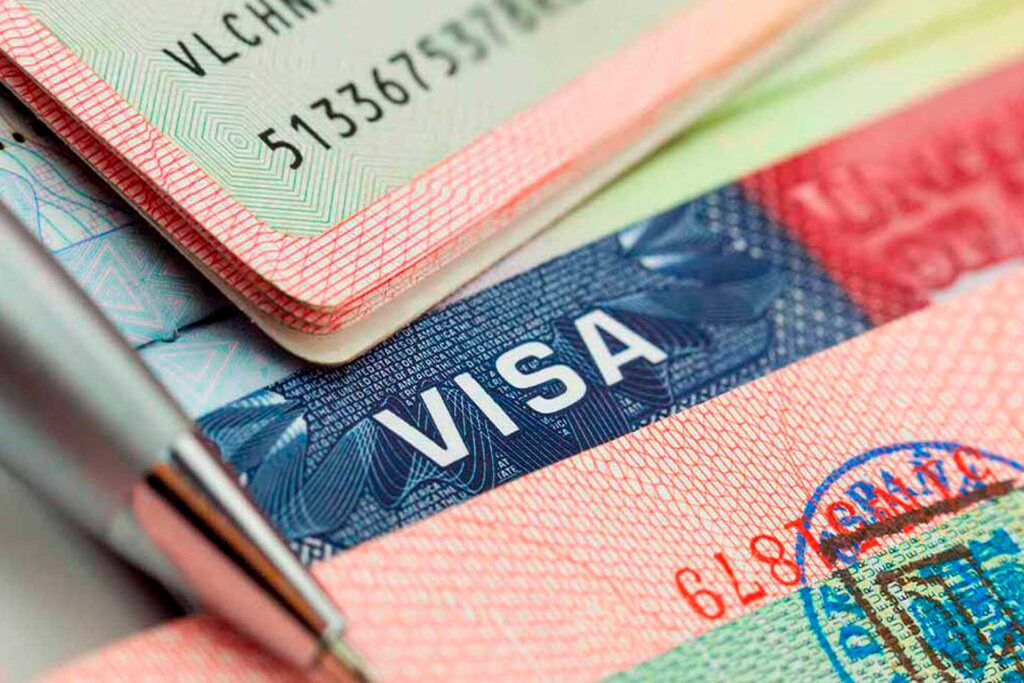
When planning your trip to Morocco during the best travel months, it’s crucial to check the visa requirements for entry. Typically, tourist visas last up to 90 days, but the allowed duration can vary, so make sure to confirm the specifics of your visa.
The process for applying for a visa is straightforward, though it requires attention to detail. Start by finding the nearest Moroccan embassy or consulate, as this will be your main point of contact for visa-related questions and applications. Ensure you gather all necessary documents, which generally include your valid passport, a completed application form, recent photos, a travel itinerary, and sometimes proof of where you’ll be staying.
Upon arrival in Morocco, whether by air, sea, or land, having the correct documents ready will help make your entry smooth. Keep in mind that each point of entry into the country might have its own set of rules and checks. Also, if you have a diplomatic passport or are from a certain country, you might not need a visa, or you could qualify for a simplified entry process.
It’s always best to check the most current information to ensure that there are no surprises when you arrive in Morocco, making your entry as seamless as your planning.
3. Currency and Exchange
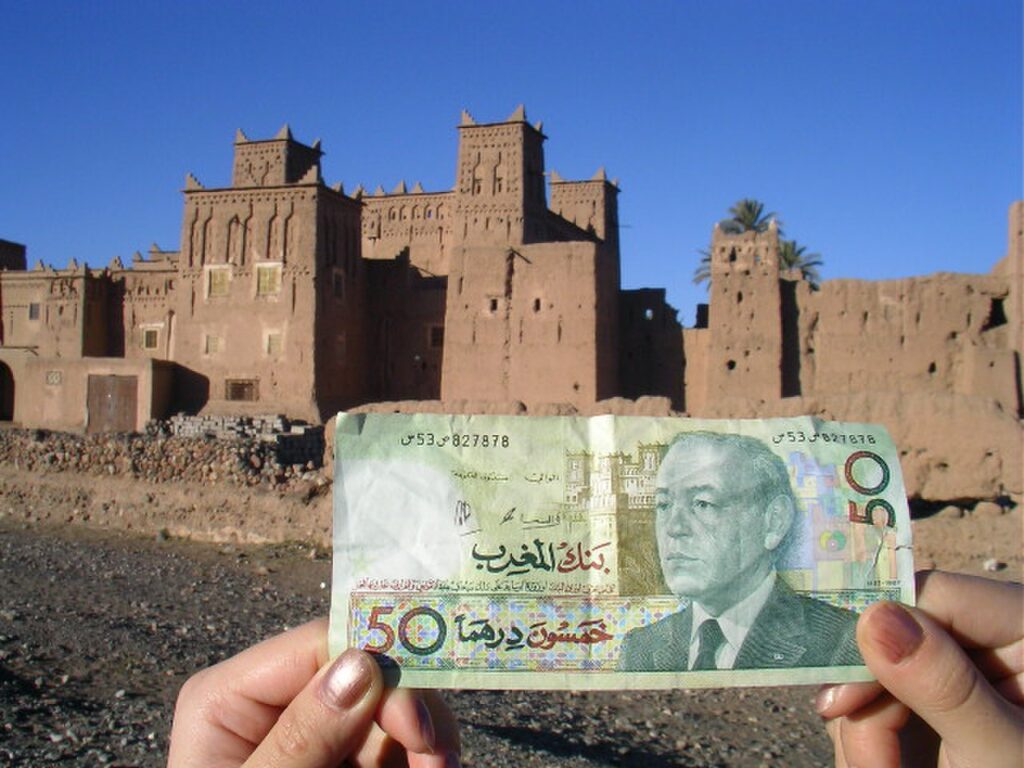
When you arrive in Morocco, understanding how to handle money will help you manage your travel budget effectively. The local currency is the Moroccan Dirham (MAD), which can change in value every day. It’s a good idea to keep an eye on these changes.
At the airport, consider exchanging a small amount of money to cover your initial costs. You can usually find better exchange rates at local banks or authorized exchange spots in city centers later on.
Be aware of ATM withdrawal fees, which can add up. Most ATMs in Morocco will accept international cards, but the fees can vary based on the bank and the card network. Bank hours might also be a limitation; they generally close at 3:30 PM and are not open on Sundays.
Credit cards are increasingly accepted in Morocco, especially in larger hotels, restaurants, and shops. However, it’s still a good idea to carry some cash, especially in smaller towns or rural areas where cards might not be accepted.
Preparing and understanding these financial details before your trip will help you navigate money matters smoothly and enjoy your Moroccan experience more fully.
4. Cultural Etiquette
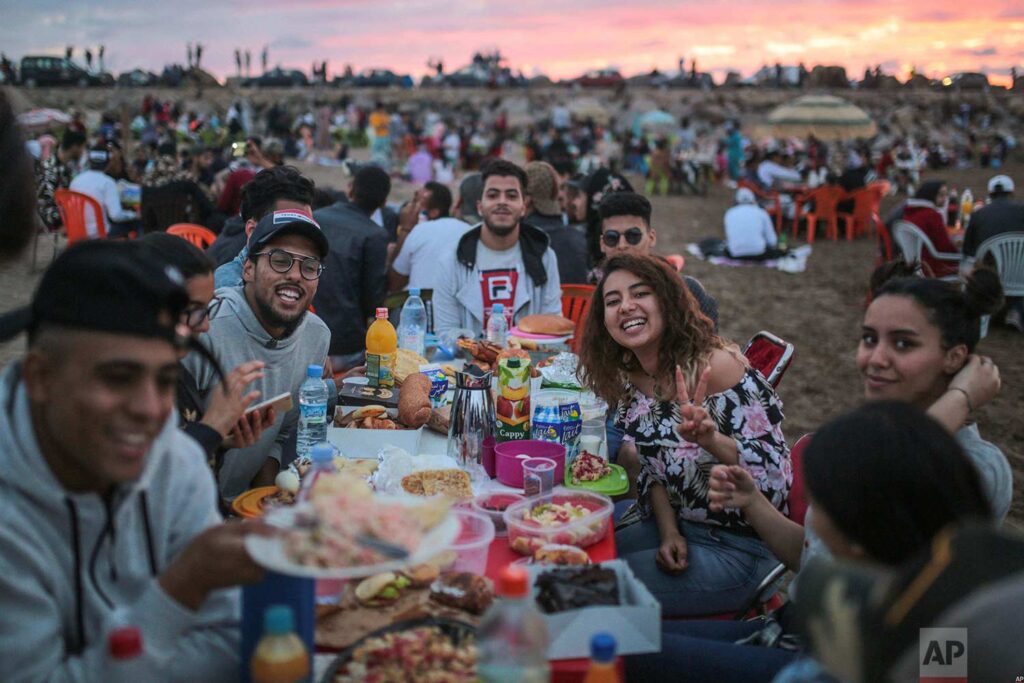
To truly appreciate the beauty of Morocco and connect with its people, it’s crucial to respect and understand local customs and etiquette. Moroccan culture is deeply rooted in religious traditions, which play a significant role in everyday life.
When visiting religious sites or during sacred times like Ramadan, showing respect is essential. Dress modestly, and behave with reverence to honor these spaces and periods. A simple gesture, like a handshake and a warm “Salam Alaikum” (peace be upon you), is a respectful way to greet locals. In rural areas or traditional settings, note that men and women might greet each other separately.
If you’re in Morocco for business, remember that while being on time is valued, meetings may not start right on schedule. Show patience and a friendly demeanor—it’s seen as respectful and can help build strong business relationships.
Be mindful of public etiquette as well. Public displays of affection are generally not accepted, and it’s considered polite to ask for permission before taking photos of people. Some Moroccans believe that photographs can capture a part of their soul, so asking first shows respect for their beliefs.
5. Dress Code Insights
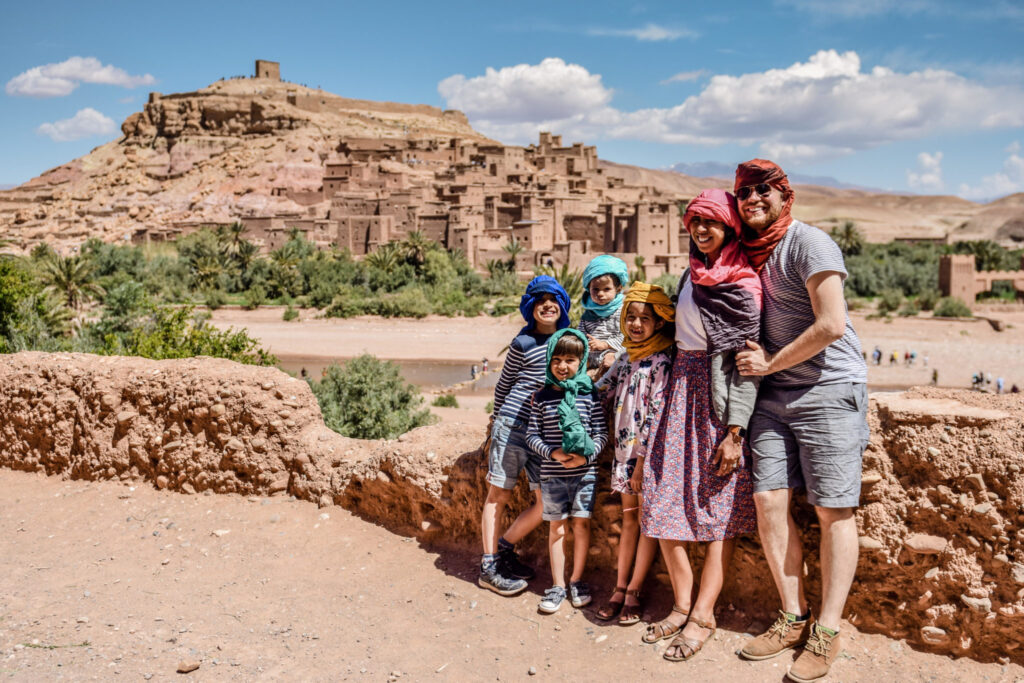
Understanding the dress code in Morocco is key to fitting in and showing respect during your visit. The choice of fabric is crucial for both comfort and respecting local customs. Light, airy fabrics such as cotton and linen are perfect, especially in the warmer months. These materials help keep you cool and meet the modesty standards of Moroccan culture.
As the seasons change, dressing in layers is smart. Desert temperatures can fall dramatically at night, so bringing a scarf or shawl is essential, not just for style but for warmth. In winter, heavier materials like wool are popular, especially in the colder Atlas Mountains.
For everyday wear, opt for conservative yet practical outfits. Long skirts or baggy pants with long-sleeved tops are the norm. Visiting local markets could also introduce you to unique items from local designers who mix traditional patterns with contemporary styles.
Accessories are also important. Trendy items include detailed, handmade jewelry and leather bags, usually made locally. These accessories are not only decorative but also great ice-breakers that showcase Morocco’s exquisite craftsmanship. When packing, think of each piece as a way to connect with the local culture.
6. Language Basics
When you visit Morocco, learning some basic phrases in Arabic can make a big difference in how you connect with local people. Even a simple “hello” can warm hearts and show respect for the culture you’re experiencing.
Moroccan Arabic, or Darija, is a bit different from standard Arabic. It has its own local twists that might even confuse people who speak fluent Arabic. To get ready for your trip, think about downloading some language apps. These apps usually have pronunciation guides that help you learn how to say basic phrases and understand the local differences. They’re great for practice while you’re traveling and can be a huge help when you need to find your way around, shop at local markets, or ask for directions.
Also, prepare some conversation openers. Asking “How much is this?” or saying “This is beautiful!” can lead to interesting talks with locals. Don’t stress too much about perfect pronunciation—people generally appreciate your effort.
Look for signs in both Arabic and English, especially in tourist spots and big cities. These bilingual signs can teach you new words and give you insights that enhance your visit to Moroccan places.
7. Safety Tips
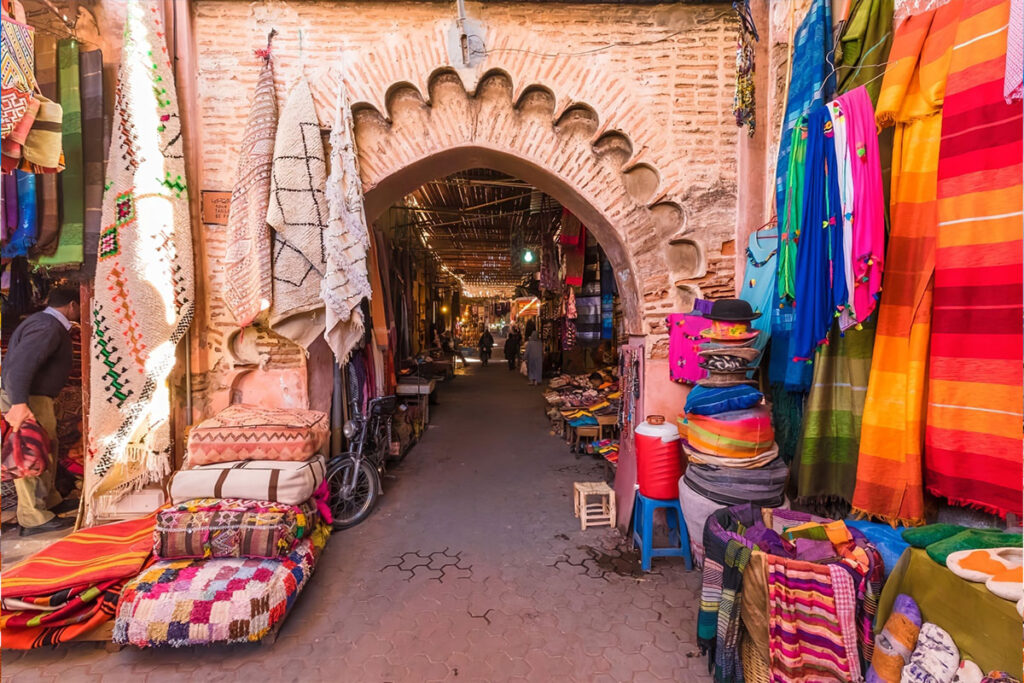
Before you dive into the colorful streets and lively markets of Morocco, here are some essential safety tips to help ensure your trip is both fun and safe. Start by getting to know the local emergency numbers. Keep these contacts handy at all times, including the number for the tourist police, who are more experienced in helping travelers.
When interacting with the police, stay calm and polite. Knowing a little local Arabic or French can help clear up any misunderstandings. It’s also important to be cautious of scams, especially in areas with lots of tourists. Watch out for overly friendly people who offer help or services without you asking, as they might expect money in return.
As evening approaches, the vibe in Moroccan cities can shift. To stay safe at night, stick to well-lit, busy places and avoid going out alone after dark. Always keep an eye on your personal items, too. Markets and crowded streets are hotspots for pickpockets. Wearing a money belt or a cross-body bag that zips up can keep your belongings secure. Always make sure you have all your valuables before you leave places like cafes, shops, or your hotel.
8. Transportation Options
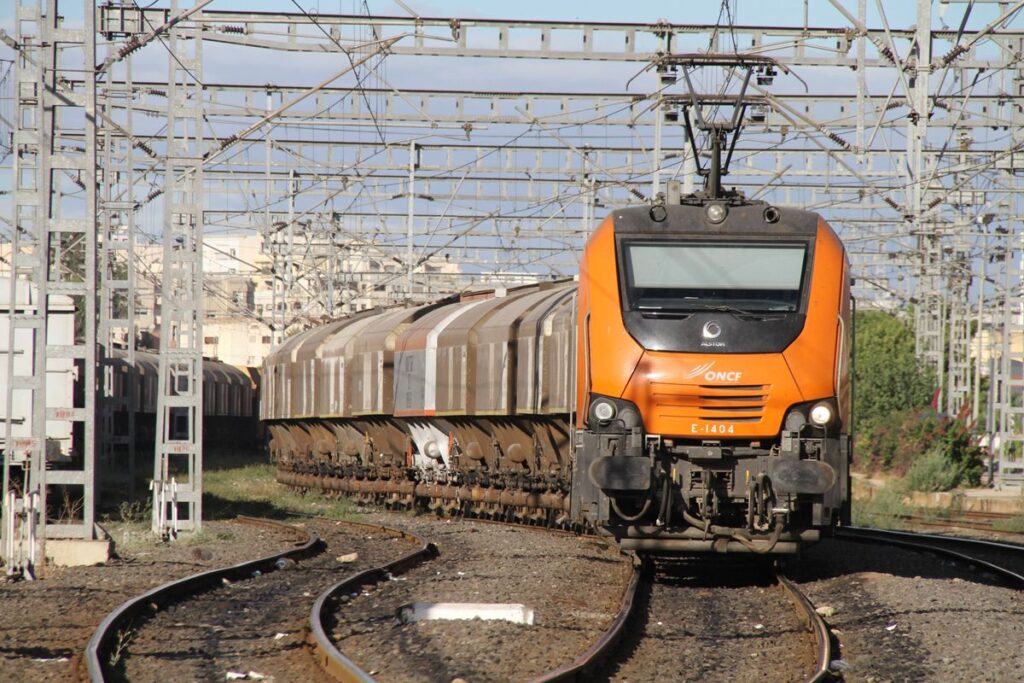
Exploring Morocco offers a unique chance to experience its rich culture and beautiful landscapes. Whether you’re winding through busy city streets or peaceful mountain trails, there are many ways to see this stunning country.
In cities like Marrakech, using public bicycles is a great choice. Many streets have bike lanes, making it easy and enjoyable to explore at your own pace. Biking is not only environmentally friendly but also lets you experience the city’s vibrant life up close.
For traveling longer distances, consider carpooling. It’s cost-effective and gives you a chance to connect with locals. People use carpool services to travel together, which can be a wonderful opportunity to share stories and travel tips. Remember, hitchhiking is another option, though it’s less common. If you choose to hitchhike, stick to busy roads during the daytime for safety.
In coastal areas, renting a scooter can be exciting. Scooters allow you to navigate through crowded markets and discover hidden gems in the city. Just be sure to ride safely and respect local traffic rules.
In places like Fez, you’ll find areas where only pedestrians are allowed. These zones are free from the noise of motorbikes and cars, providing a calm atmosphere to enjoy. Walking here, you can fully immerse yourself in Moroccan history and culture.
Whether you choose to bike, carpool, scooter, or walk, traveling through Morocco is sure to be an unforgettable adventure.
9. Famous Moroccan Dishes
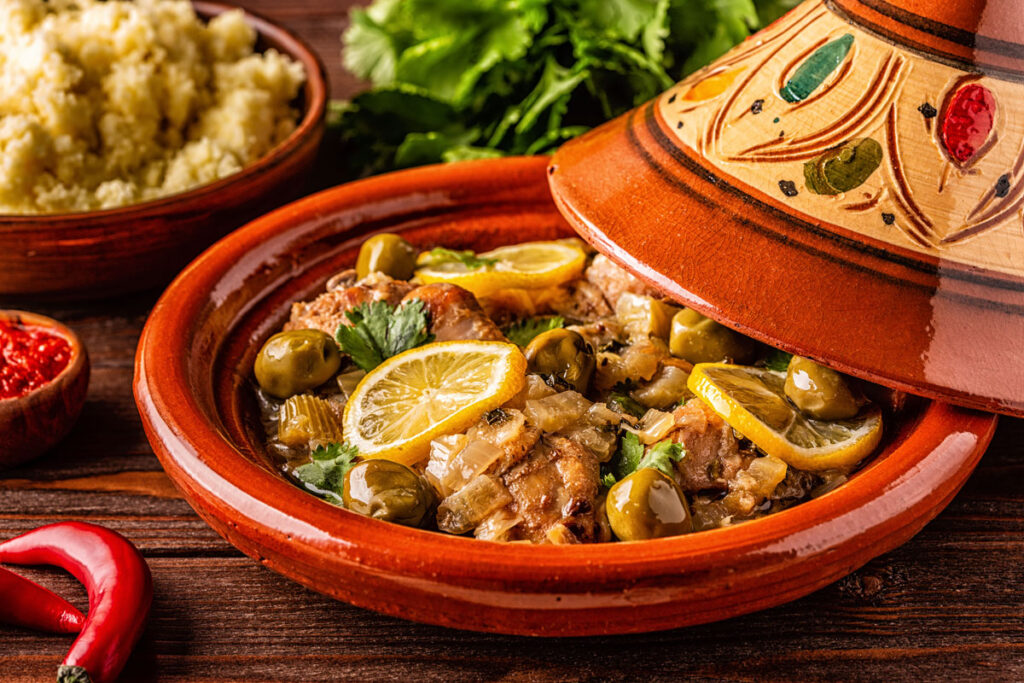
Explore the rich tapestry of flavors in Moroccan cuisine, where each dish offers a glimpse into the country’s deep culinary heritage. As you meander through vibrant spice markets, the scents of cumin, cinnamon, and saffron fill the air, drawing you closer to the origins of Moroccan food. These spices are more than just ingredients; they tell the story of Morocco’s diverse influences, including Berber, Arab, Andalusian, and Mediterranean traditions.
Consider signing up for a cooking class to dive deeper into these flavors. These classes are more than just lessons in cooking; they are a window into the history behind traditional dishes like tagine and couscous. Often, they start with a trip to a local market to pick fresh ingredients, offering a truly immersive cultural experience.
Also, don’t skip the local street food. Enjoy the grilled Kefta skewers, taste the crispy Briouats, and treat yourself to sweet, sticky dates. These snacks provide a taste of everyday life in Morocco and are a favorite among locals.
To further enhance your culinary experience, join a guided food tour. These tours take you to off-the-beaten-path eateries and family-owned restaurants where you can learn about the nuances of each dish’s preparation. Moroccan cuisine is not just food; it’s a feast for the senses, reflecting the country’s colorful, diverse, and historical backdrop.
10. Tipping Practices
Understanding tipping practices in Morocco is crucial, especially since they significantly support many locals working in the service industry. When dining out, you’ll notice that service charges are usually not added to your bill, unlike in some other countries. This means it’s your responsibility to reward good service. A common guideline is to tip about 10% of the total bill, though this can vary based on the quality of service.
For business travelers, it’s important to follow local tipping customs. Doing so shows respect and awareness of local traditions, which can help ensure smoother business interactions and relationships.
If you’re traveling in a group, consider group tipping to keep things simple. Collectively gathering tips and then giving a single amount to service providers not only ensures everyone is fairly compensated but also helps avoid the hassle of many small transactions.
Lastly, while some high-end places might add a gratuity automatically, this isn’t common. Always check your bill to make sure whether a service charge has been included. If there’s no automatic gratuity, remember that your tips are vital to those in the service industry.
11. Accommodation Choices
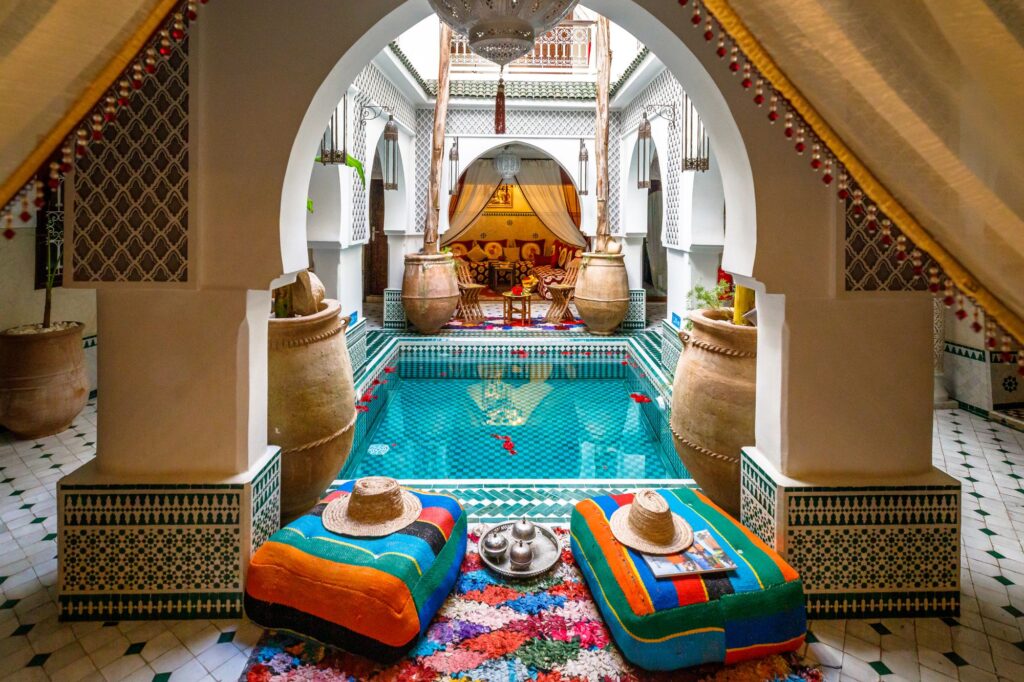
After learning how to tip properly, let’s dive into the variety of places you can stay to make your trip to Morocco unforgettable. Whether you want the luxury of grand riads, the cost-effectiveness of budget hostels, or the comfort of private family villas, there’s something for everyone.
Luxury riads are like hidden gems in Morocco’s bustling city centers. Originally traditional homes, these have been transformed into elegant boutique hotels. Each riad features a central courtyard and stunning, detailed decor, offering a peaceful retreat from the busy city life. You can expect top-notch service and possibly a rooftop terrace where you can enjoy beautiful views of the Moroccan skyline.
If you’re looking to save money, consider staying in a budget hostel. These places are great for travelers wanting to make the most of their budget and meet other like-minded adventurers. Hostels often have shared spaces where you can exchange stories and travel tips with people from around the world.
For those traveling with family or in large groups, renting a family villa might be ideal. These villas offer the comforts of home and provide plenty of space for everyone.
Nature enthusiasts might prefer camping sites or eco lodges scattered throughout Morocco’s varied landscapes. These options allow you to immerse yourself in nature and experience the country’s beauty in an environmentally friendly way. Here, you feel like you’re not just visiting; you’re part of the scenery.
Each of these options offers a unique way to experience Morocco, enhancing your journey and providing memories that last a lifetime.
12. Key Historical Sites
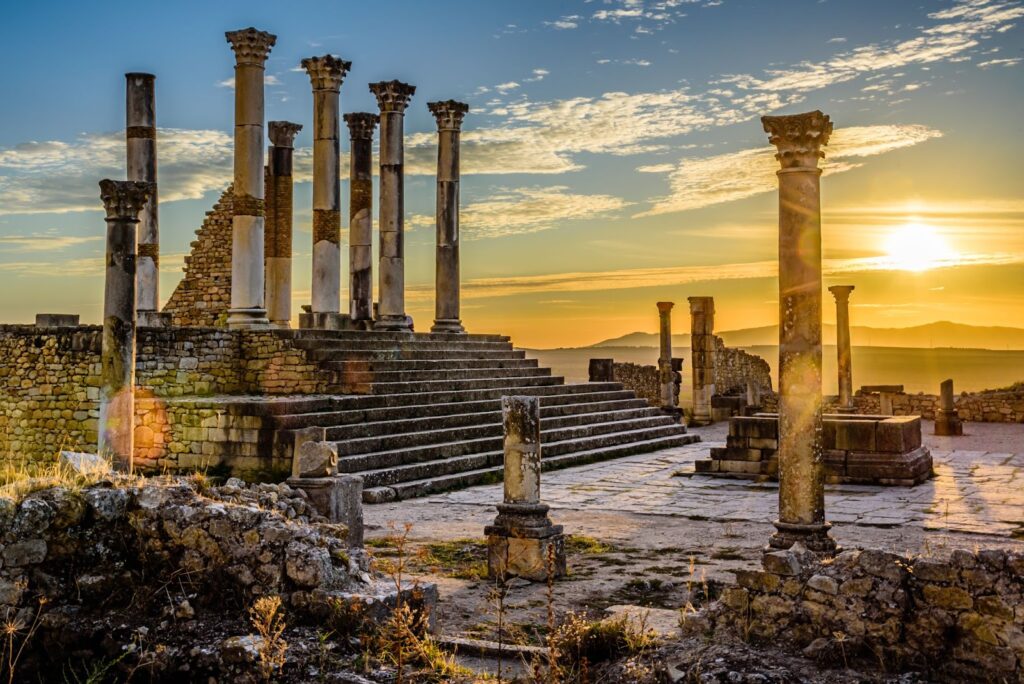
Discover the rich history of Morocco by exploring its key historical sites, where each stone and artifact has a tale to tell. The ancient architecture at these landmarks not only delights the eye but also serves as evidence of the diverse cultures that have flourished here.
Start your journey at the Roman ruins of Volubilis. This expansive site demonstrates the vast reach of the Roman Empire and provides a fascinating look into ancient city life. Walk through the remnants of streets and homes, imagining the daily activities of the Romans who once lived here.
Next, delve into the Islamic era, evident in the detailed designs of Medersas (Islamic schools) and mosques. These buildings are covered in stunning tile work and Arabic calligraphy, which are not just for decoration but also a window into the religious and educational progress of the time.
Make sure to visit the Sultanate palaces, where luxury meets power. These palaces feature large courtyards and ornate decor that tell stories about the rulers who lived there.
Finally, explore the Kasbahs, robust fortresses that reveal the enduring spirit of the Berber culture. These structures, set against the rugged landscapes, are a testament to a resilient culture that has survived through the ages.
Each site offers a unique insight into the complex tapestry that is Morocco, making your visit both enlightening and unforgettable.
13. Shopping in Souks
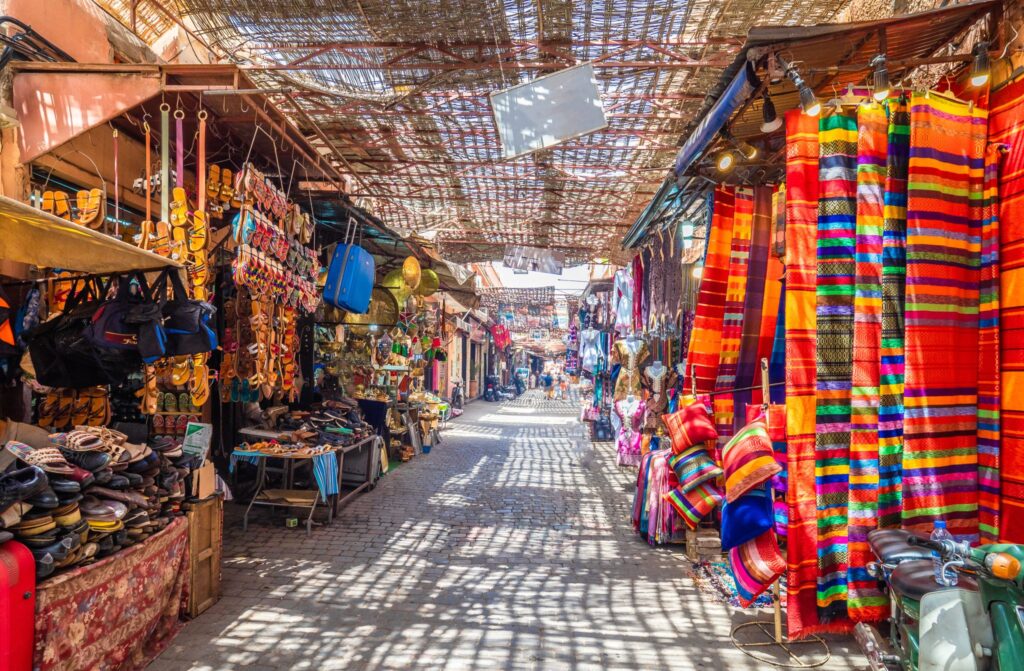
As you wander through the colorful labyrinth of souks in Morocco, you’ll find that shopping is not just about what you buy, but also about the experience itself. Every corner of these markets introduces you to the rich Moroccan culture, showcased by beautiful handmade crafts. Local artisans dedicate themselves to making one-of-a-kind items, such as detailed woven rugs and beautifully crafted silver jewelry.
You’ll quickly understand that bargaining is an essential part of the shopping experience in these lively markets. Embrace it, as it’s expected. Begin by offering about half of the initial price and enjoy the friendly back-and-forth that follows. Bargaining isn’t only about securing a good deal—it’s a way to connect with the seller, exchange stories, and share laughs.
Keep in mind the operating hours of the market, typically from early morning to late afternoon. Visiting during these times ensures you have access to the best variety of items. When picking souvenirs, think about choosing leather items, ceramic plates, or traditional lamps, each embodying a piece of Moroccan heritage and artistry.
Shopping in the souks is more than just making purchases; it’s a deep dive into Moroccan daily life that will leave a lasting impression. Dive into the amazing environment, and you’ll walk away with not just items, but cherished memories.
14. Nightlife and Entertainment
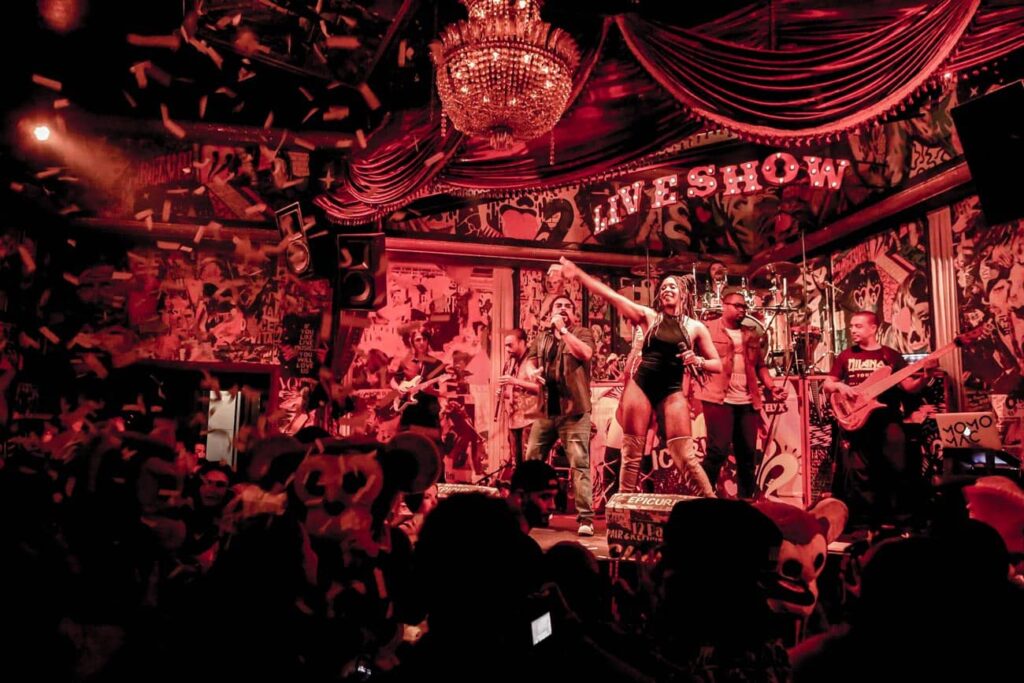
As the sun sets in Morocco, the nightlife comes alive with a variety of options to suit every preference. Wander through the winding alleys of the medinas and you’ll be captivated by the blend of traditional and modern music that fills the air. This mix of old and new creates a unique atmosphere that both locals and travelers enjoy.
If you prefer the seaside, head to the beach parties in coastal cities like Agadir and Casablanca. These events are vibrant with DJs playing a mix of international hits and local favorites, all under the starry sky and accompanied by the soothing sounds of the ocean.
When dressing for club nights, keep in mind that many places prefer a chic look. Men might wear button-down shirts with dress pants, and women might choose stylish dresses. Dressing well is part of the experience, helping you feel integrated into the sophisticated vibe of these spots.
For a relaxed evening, consider visiting a rooftop bar. These venues offer stunning views of the city and are perfect for enjoying a local drink as the sunset turns the sky into vibrant shades of orange and pink. These bars often host evening entertainment ranging from acrobatics to belly dancing, adding a magical touch to your night.
This guide should help you navigate Morocco’s exciting nightlife scene, ensuring you have a memorable and enjoyable experience.
15. Festivals and Events
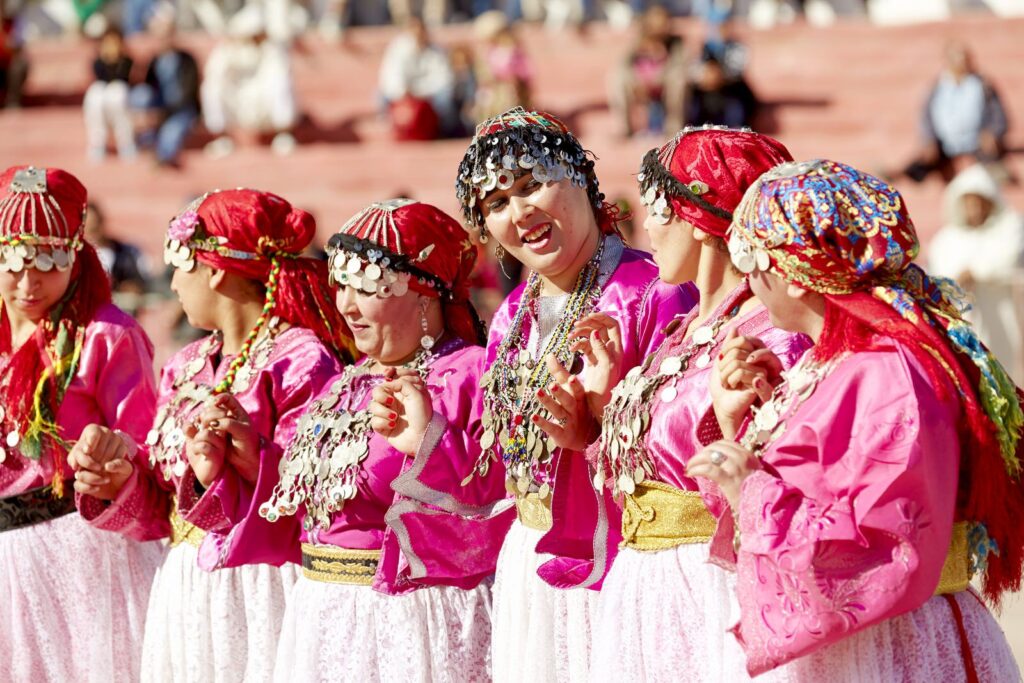
Morocco is a vibrant country of culture, filled with festivals and events that reflect its rich heritage. Imagine yourself surrounded by the breathtaking desert landscapes, enjoying concerts under the stars. These events are more than just musical performances; they are a celebration of the Moroccan spirit.
Dive deeper into the local culture by participating in Berber festivals. These lively events are a deep dive into the lives of the indigenous Amazigh people. Experience their history and pride firsthand through traditional dances and music, which create a lasting connection among participants.
In cities like Marrakech and Essaouira, the streets come alive with arts festivals. You’ll see performers sharing stories and poetry right in the public squares, turning every corner into a stage for cultural storytelling.
For a spiritual experience, the Sufi rituals are a must-see. These ceremonies combine ancient songs and dance to achieve a deep spiritual connection, aiming to bridge the earthly with the divine.
Visiting Morocco’s festivals offers a unique chance to experience the country’s cultural heart. Each event promises memorable moments infused with the essence of Moroccan traditions.
16. Natural Landscapes
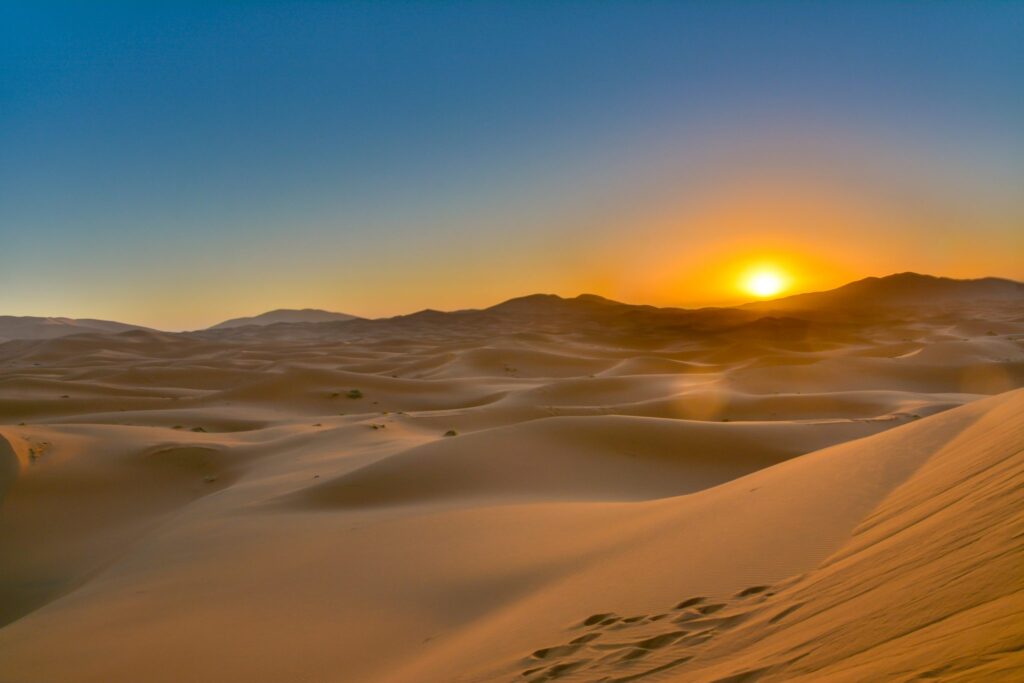
The natural beauty of Morocco is breathtaking, with landscapes ranging from the towering Atlas Mountains to the peaceful Atlantic coastlines. Each corner of this vibrant country offers a picture-perfect scene that beckons you to explore more. As you journey through Morocco, you’ll find a variety of natural settings that offer both excitement and relaxation.
Morocco’s diverse geography provides a thrilling array of outdoor activities suited for all preferences:
- Desert Adventures: Venture into the expansive Sahara Desert on a camel ride or a 4×4 safari. Watch as the sunset turns the sand a brilliant orange and red.
- Coastal Hikes: Take a hike along the Atlantic coast’s rugged trails. Here, the cliffs drop dramatically to the ocean, giving you spectacular views and the invigorating scent of salty air.
- Mountain Treks: Take a hike through the Atlas Mountains. The high-altitude trails offer breathtaking views and the chance to visit remote Berber villages.
In addition to these adventures, Morocco is home to beautiful rivers and quiet forests that provide a serene getaway. Each landscape tells its own unique story, inviting you to experience and share it.
This guide is designed to help travelers understand and appreciate the stunning environments Morocco has to offer, ensuring a memorable and enriching experience.
17. Mobile Connectivity
Staying connected while traveling in Morocco is easier than you might think, thanks to the widespread mobile network coverage across the country. Whether you’re exploring the vibrant streets of cities or small mountain villages, you can easily keep in touch with friends and family.
To avoid high roaming fees, consider buying a local SIM card. You’ll find many sellers offering affordable data plans that match your needs. With a local SIM, you can instantly share your travel experiences and navigate new areas effortlessly.
In bigger cities, you’ll enjoy strong mobile network coverage. However, in more remote places, the connection might not be as reliable. In these areas, Wi-Fi in cafés and hotels becomes essential. This is a great chance to enjoy a slower pace and perhaps relax with a traditional mint tea.
As you plan your trip, think about these connectivity options. Using local mobile solutions not only saves you money but also gives you a deeper insight into Moroccan life. Remember, your ability to connect can flexibly fit with your travel plans.
18. Health and Vaccinations
Before you pack your bags for Morocco, it’s crucial to consider the necessary health precautions and vaccinations. These steps will ensure that you can fully enjoy the beautiful culture and landscapes worry-free.
- Travel Insurance: Make sure to purchase comprehensive travel insurance that covers medical expenses.
- Water Safety and Access to Medications: Always drink bottled water to steer clear of stomach issues. While pharmacies in big cities are usually well-stocked, it’s a good idea to bring a sufficient supply of any special medications you might need.
19. Local Beverages
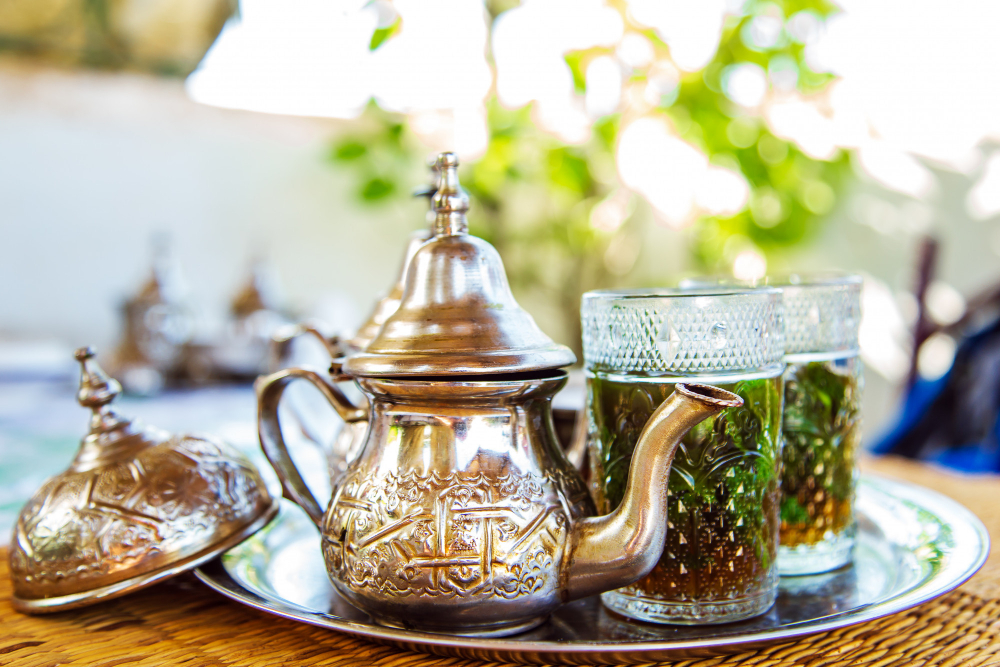
When visiting Morocco, make sure to try the local beverages, which are an essential part of the country’s rich culinary culture. Whether you’re exploring bustling markets or enjoying the peaceful Atlas Mountains, each drink offers a glimpse into Moroccan traditions and flavors.
One of the highlights is Moroccan mint tea. This isn’t just a drink; it’s a cultural ritual. The tea is a blend of green tea and fresh mint leaves, sweetened and served hot. Watch as it’s poured from a height to create a frothy top — this technique is a sign of hospitality and the tea maker’s skill.
Coffee lovers will also find something special in Morocco. Try the ‘nous-nous‘, a popular choice in local cafes. It’s a mix of half espresso and half steamed milk, perfect for warming up on a cool morning.
Don’t miss the juice stalls in city squares, where you can enjoy freshly squeezed orange and pomegranate juices. These drinks are made from local fruits and are incredibly refreshing.
In the markets, you might also discover herbal infusions made from local herbs like rosemary, sage, or verbena. Each offers a distinct taste and provides insight into Moroccan herbal practices.
However, it’s important to remember that Morocco is a predominantly Muslim country, where drinking alcohol in public is generally not allowed. You can find alcohol in hotels and licensed bars, but it’s best to drink discreetly and respect local customs.
Enjoy your culinary adventure in Morocco, and make sure to indulge in these traditional beverages that are as much a part of the experience as the sights and sounds of the country.
20. Day Trips and Excursions
Venture just outside the city in Morocco, and you’ll discover a world of exciting day trips and excursions that will lead you into the essence of its natural beauty and historical sites. Picture yourself trekking through the rugged terrain of the Atlas Mountains, where expert guides will take you to secretive Berber villages set against dramatic landscapes. Alternatively, you might enjoy the lively experience of staying in a rural home, diving into the everyday life and rich traditions of the Moroccan countryside.
Morocco offers a diverse array of experiences:
- Wildlife Watching: Head to the cedar forests of the Middle Atlas mountains for a chance to see Barbary macaques. These monkeys are native to the region and seeing them in their natural surroundings is a special experience.
- Adventure Sports: For those who crave excitement, try sandboarding on the Sahara’s expansive dunes or surfing the breezy waves of Essaouira. Morocco is a haven for adventure seekers.
- Coastal Explorations: Visit the stunning coastlines, where small fishing villages serve up fresh seafood and the ocean brings stories of ancient sea voyages.
We are a travel agency, and each trip with us offers an opportunity to challenge yourself and try something new, all while being welcomed with the renowned hospitality of Morocco. Whether you’re looking for heart-racing adventures or peaceful scenic views, Morocco’s day trips will provide lasting memories long after your journey ends. Contact us to check offers!
Conclusion
As you gear up to discover the stunning landscapes and lively culture of Morocco, it’s best to visit during the cooler seasons. Remember to respect local traditions and immerse yourself in every unique experience. Wear modest clothing, keep your phone charged to stay in touch, and make sure to avoid tap water to protect your health. Don’t forget to try the local mint tea and consider taking some exciting day trips. With these tips, you’re ready to have a truly enriching adventure. Morocco is ready to reveal its secrets to you. Enjoy it!
